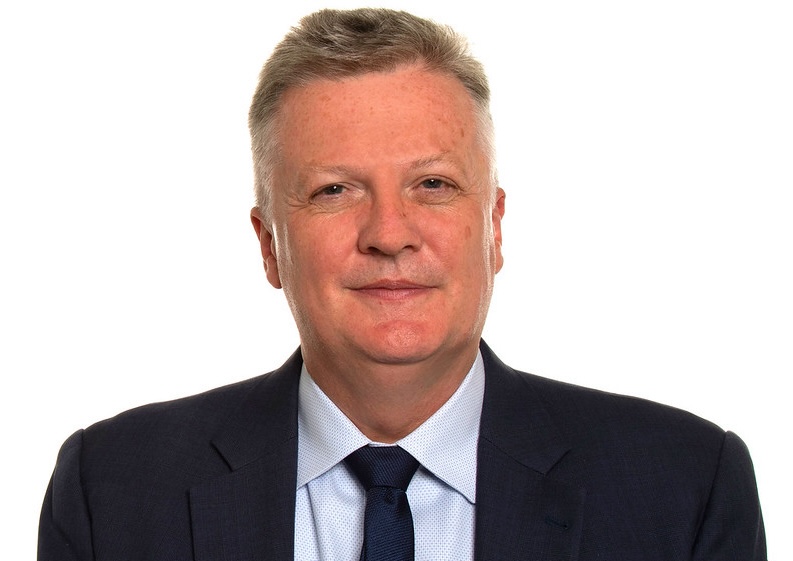
The Bank of England chief economist is more “comfortable” about the direction of inflation — but this came as the Organisation for Economic Co-operation and Development raised its forecast for the cost of living in the UK.
Huw Pill said: “It’s always a question of a balance of risks. And you know, I have been on the side of saying maybe the balance of risks are more on the inflationary side than the disinflationary side.”
The central bank economist was speaking at the inaugural Pictet Research Institute Symposium 2025 in Geneva this morning.
But Pill (pictured) added: “I think, through time, and also as markets reprice, that probably is changing. And personally, I’m more comfortable now than I was six, nine, 12 months ago.”
However, his comments come as the OECD said the UK will be hit by the highest inflation in the G7 group of the world’s most developed countries this year, buffeted by higher payroll taxes, and an increase in the minimum wage and food prices.
The Paris-based thinktank’s interim economic outlook raised its forecast for UK inflation this year to 3.5% from a previous forecast of 3.1% and pushed up its projection for 2026 to 2.7%.
Britain’s inflation rate of 3.8% in August was the highest in the G7, with the BoE predicting it will peak at 4% in September, double the central bank’s 2% target. The BoE thinks inflation will return to 2% only in the spring of 2027.
The body also predicted UK growth of 1.4% this year, up from 1.1% last year, the second-fastest after the US among the G7.
But next year the thinktank forecasts the UK economy will ease to 1%, weighed down by “a tighter fiscal stance and higher trade costs,” behind the US, Canada and Germany.
Chancellor Rachel Reeves said: “These figures confirm that the British economy is stronger than forecast – it has been the fastest growing of any G7 economy in the first half of the year.
“But I know there is more to do to build an economy that works for working people – and rewards working people. That is what I’m determined we deliver through our plan for change.”
Conservative leader Kemi Badenoch said the OECD report was a “damning verdict on Starmer’s weak economic management.”
Last week, the Bank’s nine-strong Monetary Policy Committee voted 7–2 to maintain Bank rate at 4%, with two external doves, Swati Dhingra and Alan Taylor, pressing to cut the interest rate by a quarter point to 3.75%.
The reduction brought the interest rate down to its lowest level since March 2023 and was the third cut by rate-setters this year and the fifth since last August.
But the committee’s minutes added that it “remains alert to the risk that this temporary increase in inflation could put additional upward pressure on the wage and price-setting process”.
Earlier this month, Bank of England governor Andrew Bailey warned that there is “considerably more doubt” about when the central bank will be able to cut interest rates again.
He said that “although I think that the path will continue to be downwards, gradually over time, because policy is still restrictive…. there is now considerably more doubt about exactly when and how quickly we can make those further steps”.
Most traders no longer expect another rate cut this year, with the next reduction only fully priced in by next April.



